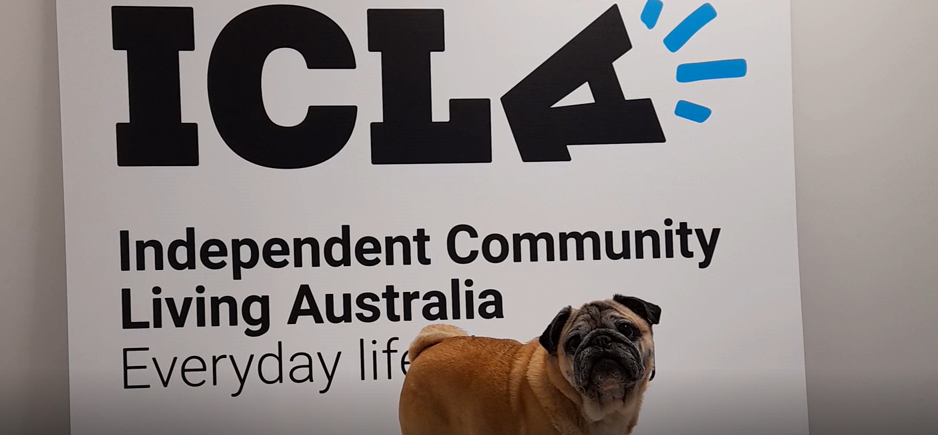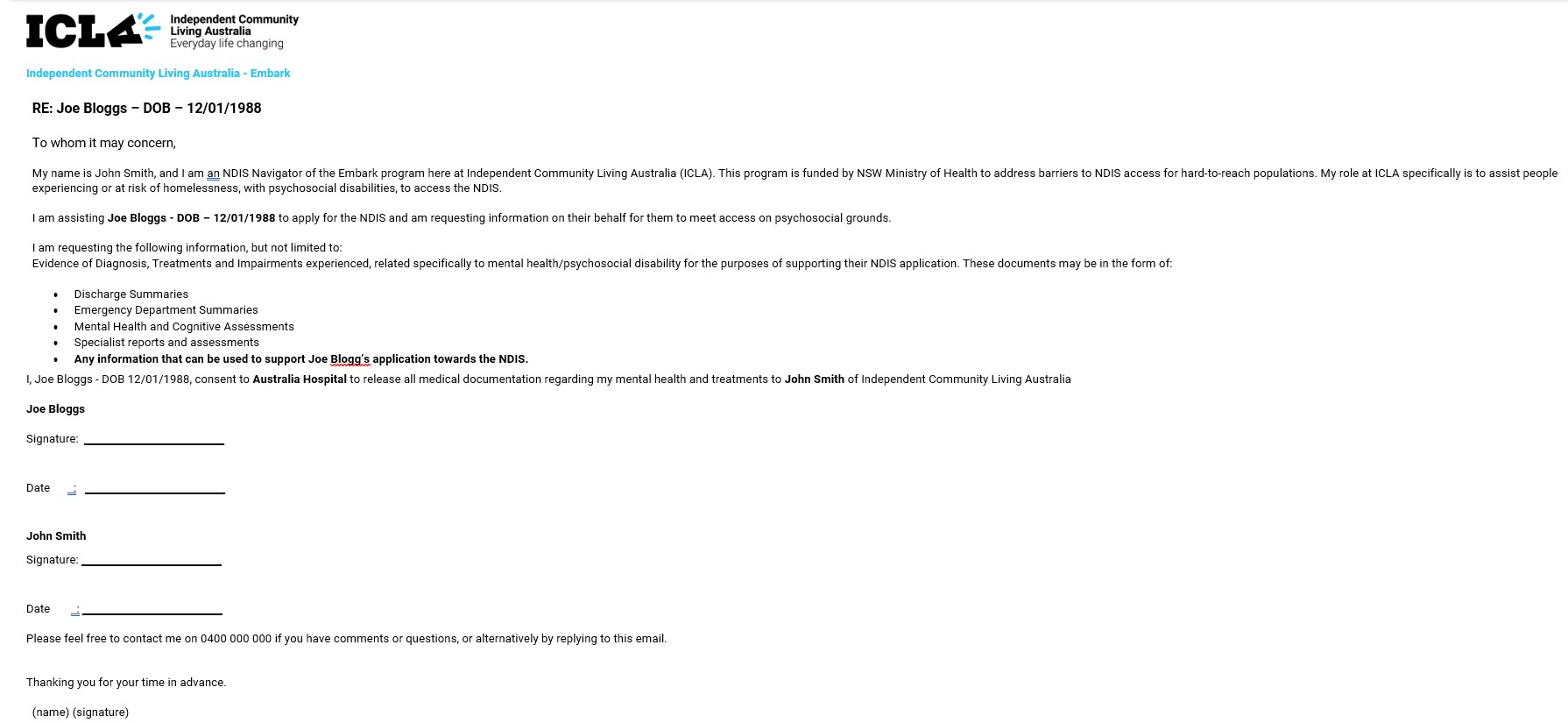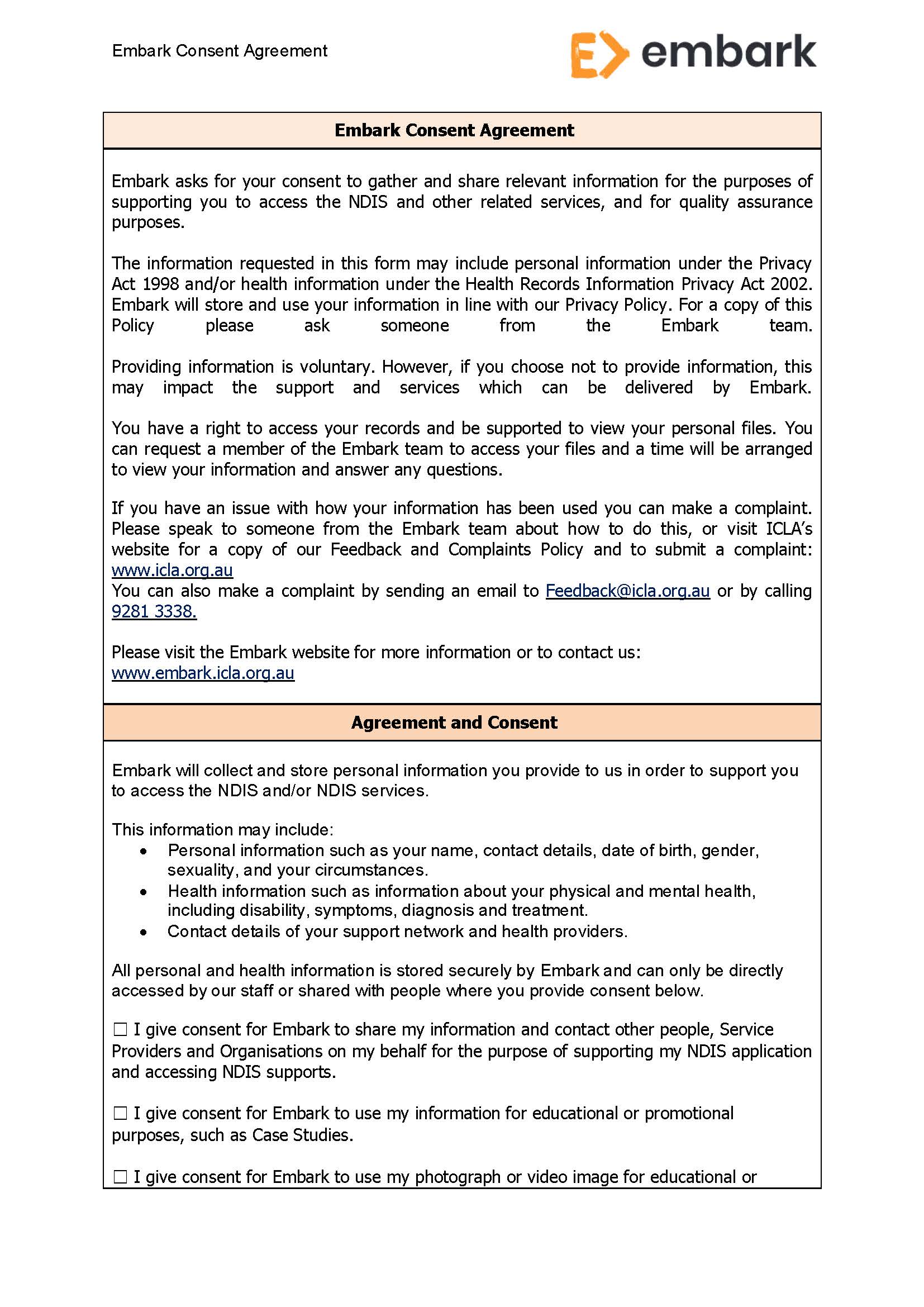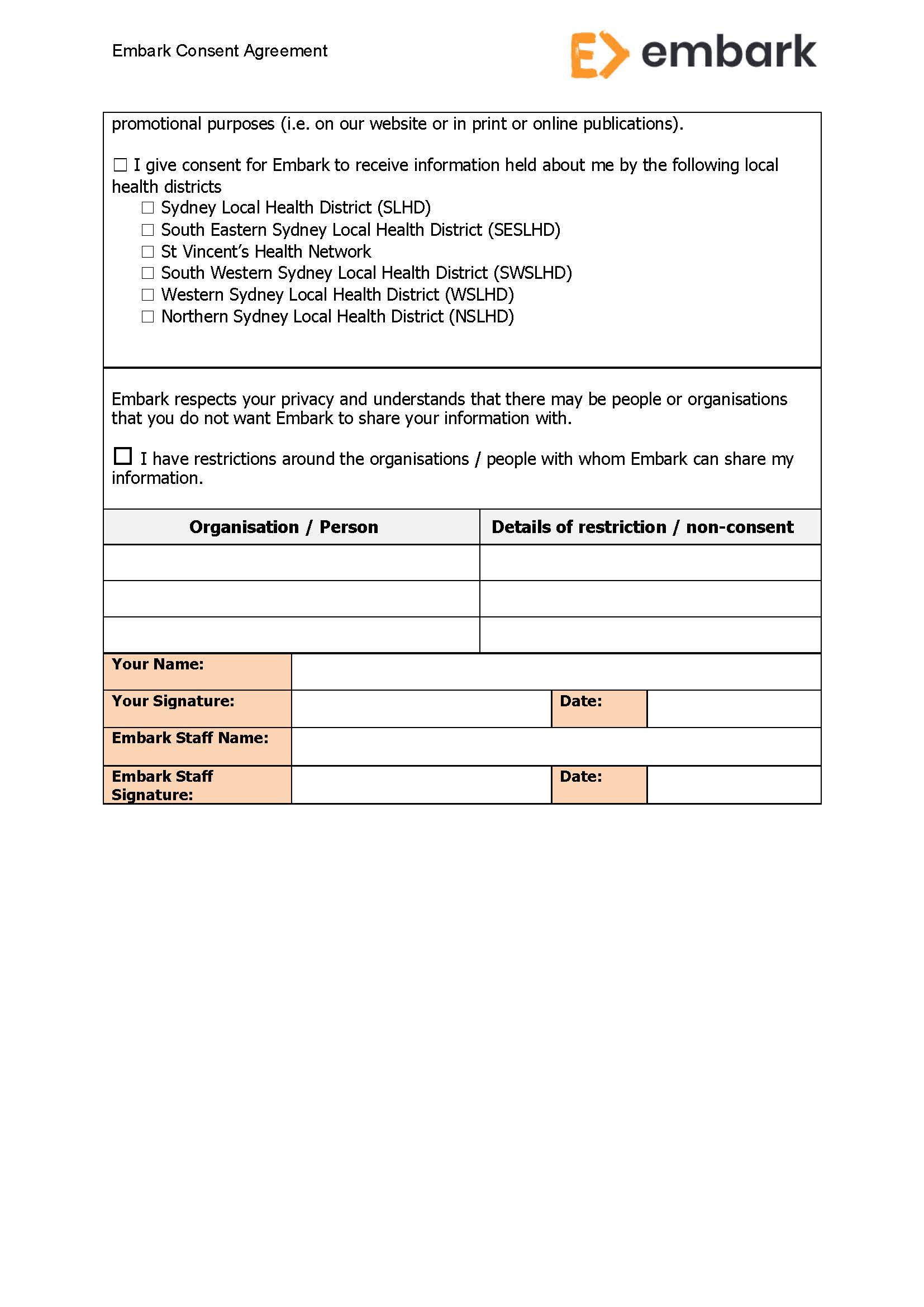
Thanks for joining us in our Embark blogpost series, where we share some of our tips for supporting people to access the NDIS. Embark provides support to people with disability living in the Sydney Metropolitan area that are living with a mental health condition and experiencing (or at risk of) homelessness, to access the NDIS. [You can make a referral to our free service via: www.icla.org.au/embark/]
You can also get in touch for support – via Embark Upskill, we facilitate free workshops across NSW, open to anyone who wants to improve their confidence and understanding of the NDIS in order to support people with a mental illness to access the NDIS and obtain the supports they need. [Make an enquiry via: www.icla.org.au/embark/upskill]
Following on from our previous post, consents and medical documentation is a big part of what we do – and again, for great reason! When sharing sensistive and personal healthcare information, we need to know that the participant is comfortable and willing to have their personal information stored and gathered on their behalf by not only yourself, but also the NDIS. The importance of consent across all areas of medical documentation is crucial in making sure that you are operating truthfully, and lawfully.
There will be times when gathering consents for the people you are supporting can become a little tricky – some examples of challenges that you may run intoinclude:
- The organisation won’t accept a consent form that isn’t their own.
- There is no clear information available about how to obtain consent from the organisation, or who to approach at the organization to obtain/discuss consent.
- The organisation that you are requesting information from doesn’t have their own specific consent form for you to complete.
- The organisation doesn’t have the specific questions and/or documents that you are requesting outlined in their consent form.
- The organisation won’t release documentation that is considered ‘sensitive’ and/or related to a patient’s mental health. Different organizations/practices will have thier own approachto this.
- The person you are talking to from the organisation can’t find the consent form you previously submitted on file.
- The consent for you initially submitted does not specifically mention the type of information you are requesting at a later date.
- LHD’s (local health districts), medical practices, services, and other organizations may all have their own policy and procedure around requesting confidential information, and who they will release this information to. It’s always worth proactively reaching out to the relevant teams or individuals that will be able to advise you of the correct way to obtain consent from their organisation for the specific information you will be requesting i.e., what forms need to be completed, where can you find them, and where/ to whom to submit them. For example, if you are requesting information from a specific doctor at their own practice, you would start by calling through to the practice, advising the reception staff of what information you need, what forms (if any) need to provide, where you can find them, and how to submit them.
- In some cases, an organisation won’t have their own specific consent form, however this does not mean that they will not require consent to release information. For this reason it’s worth placing all this information onto a letterhead outlining all the above information and arranging for both parties (the participant and yourself) signing and dating off on.
Please see the example request of information written by Embark below –

As seen above, your consent form should cover the main areas of –
- Participants name
- Participants DOB
- Your name and organization
- The reason why you are requesting these documents.
- The specific documents that you are requesting (if known)
- Name of the facility that you are requesting documents from
- Area and space for both parties to sign and date.
- Name and signature
An important thing to remember when requesting documentation for a NDIS application is that they can (and most likely will) take time! It’s important to clarify as much as you can, and to request as broad a range of consent as possible to avoid delaying any of these procedures or individuals assisting with your request.
Please see Embarks standard consent below

 Tip – When requesting information from providers who are requesting fees to release information that you and/or the participant is unable to cover, it’s always worth trying to negotiate to have these fees waived. A lot of organisations waive fees for pension card holders, andit is worth mentioning that your service falls under the Australian ‘Continuity of Care Framework’ to indicate to the organsation that the reason you are requesting these documents is to assist the participant to access to better healthcare and support services.
Tip – When requesting information from providers who are requesting fees to release information that you and/or the participant is unable to cover, it’s always worth trying to negotiate to have these fees waived. A lot of organisations waive fees for pension card holders, andit is worth mentioning that your service falls under the Australian ‘Continuity of Care Framework’ to indicate to the organsation that the reason you are requesting these documents is to assist the participant to access to better healthcare and support services.
MORE RESOURCES
- See our ‘News and resources’ section here – https://icla.org.au/embark/access/
- Support for GPs and other health professionals – https://www.ndis.gov.au/applying-access-ndis/how-apply/information-gps-and-health-professionals
- Supporting evidence for psychosocial disability – https://reimagine.today/apply-for-ndis-support/providing-supporting-evidence/
- Get support from a Local Area Coordinator – https://www.ndis.gov.au/understanding/what-ndis/whos-rolling-out-ndis/lac-partners-community
Thanks again for joining us. Please be in touch with any questions or suggested topics for future content via embark@icla.org.au.
ICLA’s Embark program is funded by the NSW Ministry of Health to support people with a mental health condition who are experiencing, or at risk of, homelessness to access the NDIS.


Recent Comments